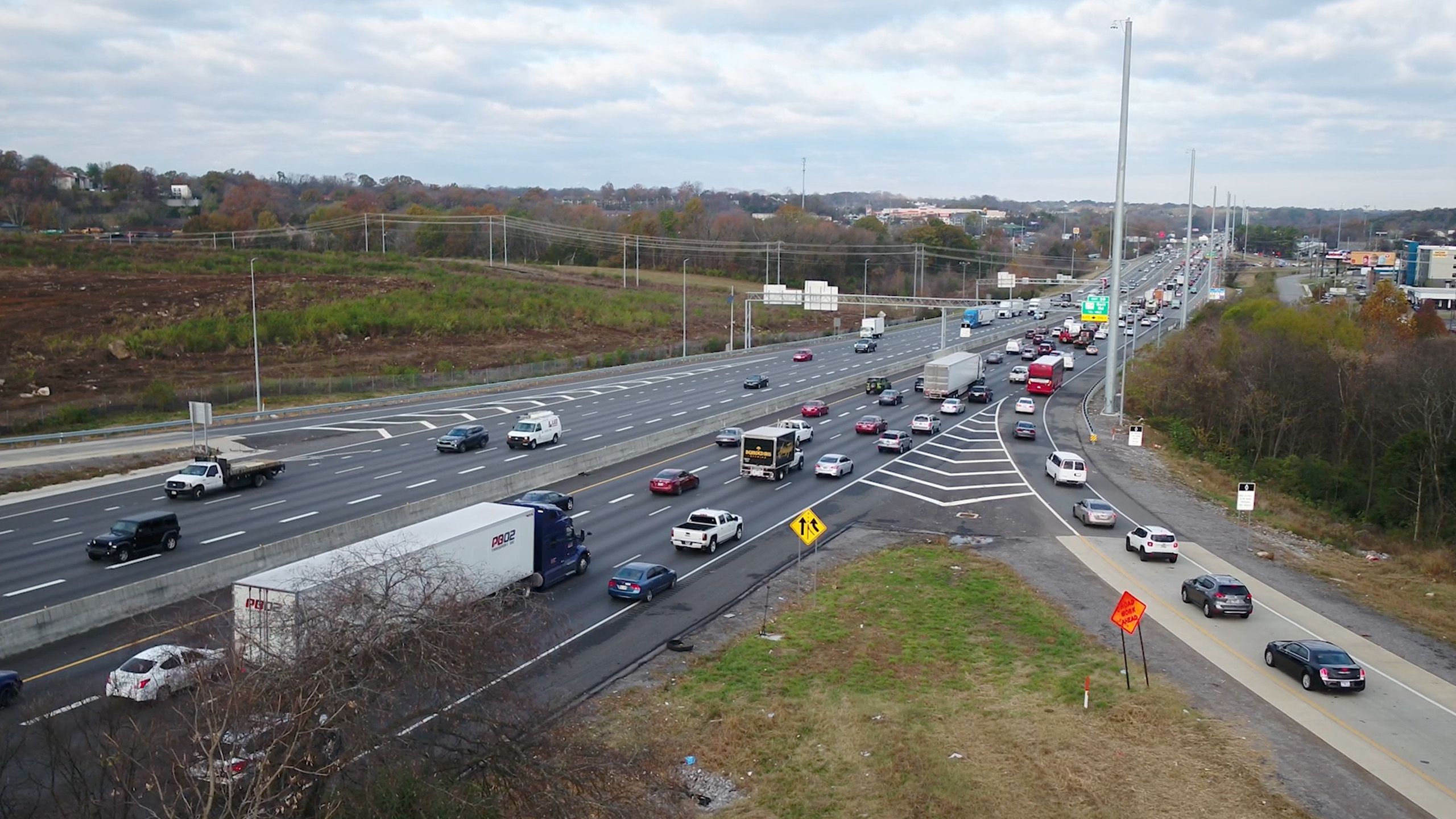Driving
Innovation
Rutgers–Camden Partners on World's Largest
Open-Track Experiment to Test AI-Equipped Vehicles

Rutgers University–Camden partnered with Nissan North America, Toyota, General Motors, the Tennessee Department of Transportation, and several other universities nationwide as part of the CIRCLES Consortium, which conducted the world’s largest traffic experiment from Nov. 14 to 18. Using a fleet of 100 specially equipped Nissan Rogues, Toyota RAV4s, and a Cadillac XT5, researchers tested an AI-powered cruise-control system designed to increase fuel savings and ease traffic by reducing human-caused roadway congestion.
The experiment—which ran on a sensor-filled portion of U.S. Interstate 24 in Tennessee—aimed to replicate results from an earlier, closed-track study where a single AI-equipped vehicle smoothed human-caused traffic congestion, leading to a 40 percent fuel savings.
“This is the largest traffic experiment in traffic history with autonomous vehicles on a real highway,” said Benedetto Piccoli, the vice chancellor for research at Rutgers–Camden and the university’s lead researcher on the project. “I am very proud of the role played by Rutgers–Camden’s team, ranging from control algorithm development to logistics.”

Rutgers University–Camden Chancellor Antonio D. Tillis applauded Rutgers–Camden’s researchers for their collaborative work on the CIRCLES Consortium.
“The CIRCLE Consortium’s research on autonomous innovation is emblematic of Rutgers–Camden’s meaningful, real-world impact,” Tillis said. “Their work will ultimately benefit generations to come.”
According to CIRCLES Consortium researchers, just one vehicle equipped with adaptive cruise control (ACC)—which has the ability to speed up and slow down a vehicle while maintaining a safe distance relative to the vehicle in front of it—could change the driving behavior of up to 20 surrounding cars. This in turn causes a positive ripple effect in day-to-day traffic. Piccoli and his colleagues will spend the next several months analyzing data collected on the AI-equipped vehicles and their impact on the flow of traffic over the duration of the experiment.
The test was conducted on the recently opened I-24 MOTION testbed, the only real-world automotive testing environment of its kind in the world. Stretching for four miles just southeast of downtown Nashville, the smart highway is equipped with 300 4K digital sensors capable of logging 260,000 vehicle-miles of data per year.
The CIRCLES Consortium research is supported by the National Science Foundation, as well as by the U.S. Departments of Transportation and Energy.

Creative Design: Karaamat Abdullah
Images courtesy of the CIRCLES Consortium